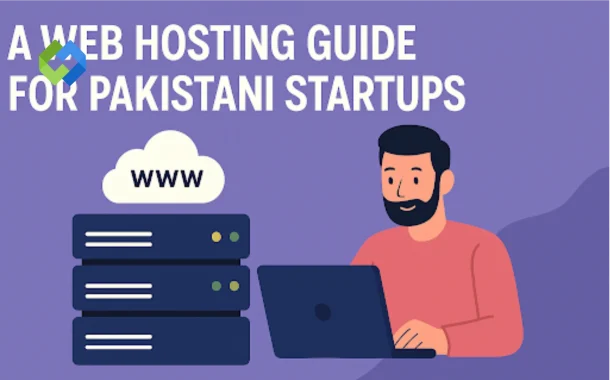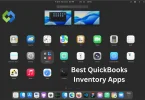However, web hosting is something you must set up before launching your website.
If you feel confused by terminology like shared hosting, bandwidth or SSL, there is no need to worry. We have written this guide for startups in Pakistan, including anyone selling handmade crafts in Lahore, setting up a tech blog in Islamabad or launching an online clothing business in Karachi.
Let’s go over all about web hosting, the basics and what it means for your online presence.
Table of Contents
Table of Contents
What Does Web Hosting Mean?
Remember that a website is like a house. Web hosting is the place where your website gets built. Without hosting, your website won’t appear anywhere on the internet.
When put technically, web hosting holds your website files on a server and lets them be reached online. Your hosting provider’s server provides the files your visitors need every time they visit your website.
The success, safety and rank of your website on search engines depend on your choice of web hosting provider.
Different Types of Web Hosting: 101
We’ll talk about each type of hosting so you know which one is best for your business.
1. Shared Hosting
It is well-known and chosen by most startups since it is inexpensive. You are placed on the same server as other users, which helps cut the price of using the service.
Designed for: Websites just starting out, usually blogs, small companies or personal websites.
Pros:
- Cost-effective
- It isn’t difficult to look after
- It is recommended for people starting out.
Cons:
- Not enough control
- Slow performance
- Speed effects during peak times
- Weak security
2. VPS (Virtual Private Server)
In VPS (Virtual Private Server) hosting, you can have all the features of a server, set aside for your own use. You can make more changes than with shared hosting.
Helpful for: Active startups interested in improving performance, user experience and site traffic.
Pros:
- A greater supply and level of control
- Scalable
- Improved security
Cons:
- Price is higher than shared hosting
- You need to have some technical knowledge.
3. Cloud Hosting
Cloud hosting divides your site over various servers. Hence, when a server stops working, another server will take its place.
Best suited for: Companies with unstable visitor numbers or those quickly growing.
Pros:
- It is very reliable.
- Resources that grow along with the project
- excellent website uptime.
Cons:
- It may seem complicated for newly interested investors.
- Prices depend on how much you make and send.
4. Dedicated Hosting
Dedicated hosting means you have one server all to yourself. It is best recommended for large websites serving lots of visitors or apps that need special settings.
Pros:
- Control of everything
- Excellent performance
- Improved security
Cons:
• Expensive
• Advanced technical talents are needed
Things to Check When Choosing a Hosting Company
Some web hosting providers are better than others. However, when you are going to buy web hosting in Pakistan you must make sure that the company offer these following features:
1. Uptime Reliability
Both the speed and reliability of your website should be high at all times. Select a host that promises at least 99.9% of the time being online.
2. Security Features
Check that your hosting service provides SSL certificates, firewalls and protection for malware. Every e-commerce startup has to do this as a minimum requirement.
3. Customer Support
Always select a provider that can help you any time, even late at night, in your preferred language.
4. Scalability
As your startup expands, you’ll need a hosting company that lets you scale your services right away.
Mistakes You Should Avoid as Pakistani Startup
You don’t need to make things complicated. Mind these frequent problems with hosting:
1. Putting Price Above Everything
Paying less is helpful, but hosting that’s too cheap might have bad user support and low efficacy. It’s a good idea to look at reviews before deciding to buy.
2. Ignoring Backups
Your web host should be able to provide automatic backups each day. You shouldn’t risk losing your site due to a technical issue.
3. Consider Hidden Costs
Take care that a cheap first price suddenly jumps after the trial period ends. Look at all the details.
4. Ignoring Customer Reviews
Make sure to read reviews from users on Trustpilot or Facebook before choosing someone.
How to Get Started with Web Hosting (Step-by-Step)
Let’s look at the steps to get your hosting set up.
- Sign up with a hosting company like Websouls.
- Find a hosting service that you can afford and that fits your aims
- Secure a domain name
- Create your website with WordPress or have a developer do it for you.
- Go live and get your startup’s name out there online!
Choose Wisely: Picking the Right Partner for Your Business
It’s fun to initiate your startup, and having a reliable, fast and secure website is essential for your business website. If you compare many web hosting providers, opt for one that understands what Pakistani startups require.
That’s why we suggest using Websouls.
Because of its affordable deals, immediate support, choices for Pakistani payment and reliable hosting, Websouls has attracted many Pakistani businesses as its clients.
Are you ready for your startup’s website to go online?
Visit Websouls to start enjoying easy and carefree web hosting immediately.














